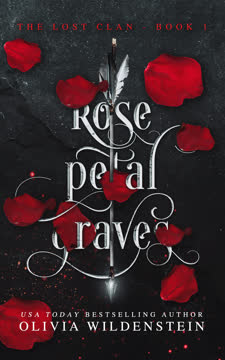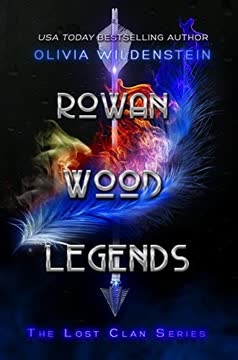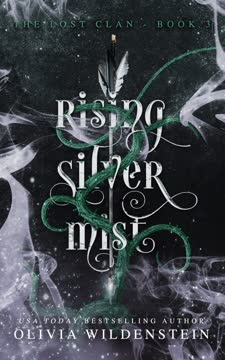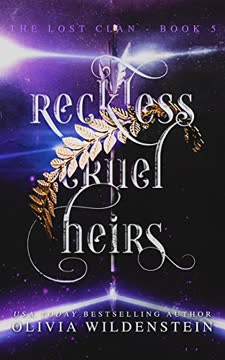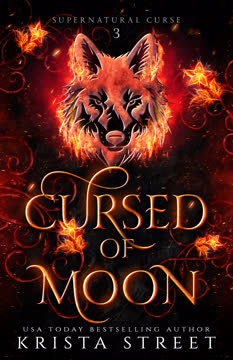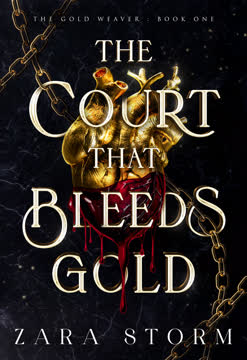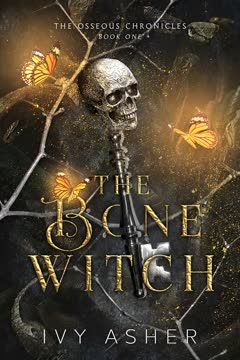Plot Summary
Homecoming to Grief
Catori Price, a college student, returns to her small Michigan hometown after her mother's sudden death. The community's awkward sympathy and her father's devastation only deepen her own grief. The family home sits atop a cemetery, a legacy of her mother's Native American ancestry. Catori's memories of her mother—an undertaker with a mystical bent—haunt her as she tries to comfort her father and process her own pain. The house, filled with reminders of the dead, becomes a place of both comfort and suffocation. The emotional weight of loss is palpable, and Catori's return is not just to a home, but to a world forever changed by absence.
The Stranger in the Snow
The arrival of Cruz Mason, a young, enigmatic medical examiner, unsettles Catori. He is not what he seems—his glowing skin and odd manner hint at secrets. Cruz's presence is both a comfort and a threat, as he offers to stay in town and help with her mother's body. The snowstorm outside mirrors the emotional blizzard within, isolating Catori and her father. Cruz's probing questions and strange behavior raise suspicions, but grief clouds Catori's judgment. The stage is set for the collision of the ordinary and the supernatural, as the boundaries between the living and the dead, the mundane and the magical, begin to blur.
Secrets Beneath the Surface
Catori insists on witnessing her mother's autopsy, convinced that the official explanation—a heart attack—cannot be true. Her medical training clashes with her emotional turmoil. The morgue, filled with the scent of roses, becomes a place of confrontation and revelation. Cruz's examination is clinical, but Catori's presence is personal. The experience is harrowing, forcing her to face the reality of death and the mysteries that surround it. The tension between science and superstition, reason and belief, is embodied in Catori's struggle to understand what really happened to her mother.
The Book of Roots
A mysterious package arrives: a leather-bound book about the Wytchen Tree, or rowan, sacred to Catori's ancestors. The book reveals the history of the Gottwa tribe, their supernatural reputation, and their ancient feud with faeries. Catori learns that her family's land is not just a cemetery, but a battleground between worlds. The book's tales of magic, protection, and burial rituals seem fanciful, yet eerily relevant. Catori's skepticism is challenged as she uncovers connections between her mother's research, the family's past, and the strange events unfolding around her.
Petals and Preservations
Investigating an old casket in the morgue, Catori finds it filled not with bones, but with fresh rose petals. Cruz jokes about faerie preservation rituals, but the discovery unsettles Catori. The book's mention of "rhodonpreservation"—using rose petals to preserve fae bodies—takes on new significance. The line between legend and reality blurs further. Catori is haunted by her mother's last message, hinting at a discovery too incredible to believe. The petals become a symbol of both beauty and decay, life and death, and the secrets that lie between.
Sparks and Suspicions
Catori's interactions with Cruz become charged—literally. Sparks fly when they touch, and Cruz's skin sometimes glows with an unnatural light. Their chemistry is undeniable, but so is the sense of danger. Catori's friend Blake, scarred by war and loyal to her, grows suspicious of Cruz. The tension between the three intensifies as Catori is drawn deeper into the mysteries surrounding her mother's death, the casket, and Cruz's true nature. The supernatural intrudes on the everyday, and trust becomes a rare commodity.
The Spell and the Sight
As family gathers for the funeral, Catori and her aunt Aylen discover a spell inscribed inside the old casket. The spell, written in the Gottwa language, promises resurrection if read by a descendant. Aylen dismisses it as legend, but Catori is not so sure. She learns she possesses "the sight"—the ability to see through faerie illusions. Cousin Gwenelda, a stranger from Canada, reveals herself as a fellow hunter and warns Catori of dangers to come. The family's legacy is not just one of grief, but of power and peril.
Iron and Illusions
Gwenelda gives Catori an opal-and-silver necklace, explaining it will protect her from faeries. Cruz reveals his true nature: he is fae, vulnerable to iron and unable to touch Catori while she wears the necklace. He demonstrates his powers—fire, levitation, illusion—and explains the ancient enmity between fae and hunters. Catori learns that her family's role as faehunters is both a gift and a curse, making her a target in a centuries-old war. The necklace becomes a symbol of both protection and separation, as Catori navigates her new identity.
The Corpse and the Hunter
Cruz reveals that Catori's mother died not by faerie hand, but as a consequence of awakening a powerful ancestor—Gwenelda—through the casket's spell. The body that was supposed to be in the casket is missing, and Gwenelda, now alive, is on the loose. Catori is forced to confront the reality that her family's rituals have real, dangerous power. The lines between victim and perpetrator, hunter and hunted, blur as Catori realizes she must stop Gwenelda to prevent further tragedy.
Arrest and Revelations
Cruz is arrested for impersonating the medical examiner and suspected of murder. The town's suspicions and the Woods family's intervention complicate matters. Ace Wood, a powerful fae, arrives to secure Cruz's release and offers to buy Catori's family land. The true stakes of the fae-hunter conflict become clear: the land is not just valuable, but vital to the balance of power. Catori's trust in Cruz is shaken by revelations of his past and his loyalties, but their connection persists.
The Woods' Offer
The Woods family, wealthy and influential fae, offer Catori's father a fortune for their land. The offer is tempting, but Catori refuses, unwilling to abandon her mother's grave and her family's legacy. The Woods' motives are suspect, and their presence in Rowan signals a larger conflict. Catori's relationship with Cruz is further complicated by the revelation of his engagement to Lily Wood, a mute but perceptive fae. Loyalties are tested as Catori navigates the treacherous waters of fae politics and family duty.
The Hunter's Awakening
Gwenelda, now fully awakened, seeks out Catori and reveals the history of the Gottwa tribe's war with the fae. She claims innocence in Catori's mother's death, blaming the fae or the spell itself. Gwenelda's presence is both a threat and a promise—she offers Catori guidance, but also draws her deeper into the conflict. The awakening of other hunters looms, and Catori must decide where her loyalties lie. The past is no longer buried, and the future is uncertain.
Fireflies in the Graveyard
The Woods deploy magical "fireflies" to guard the cemetery, but Gwenelda is attacked and nearly killed by fae. Cruz heals her, revealing the depth of his powers and his willingness to defy his own kind. The boundaries between friend and foe blur as Catori, Cruz, and Gwenelda navigate shifting alliances. The graveyard, once a place of mourning, becomes a battleground for control and survival.
Friends, Foes, and Family
Catori's relationships with Blake, Cruz, and her family are strained by secrets, jealousy, and the demands of the supernatural conflict. Blake's unrequited love and Cruz's divided loyalties create emotional turmoil. Gwenelda's presence forces Catori to confront her own identity as a hunter and the responsibilities that come with it. The lines between love and duty, trust and betrayal, are tested as the stakes grow higher.
Deceptions and Divides
Gwenelda disappears, and Cruz is punished by the fae for helping a hunter. Ace and Lily Wood intervene, revealing the extent of faerie surveillance and manipulation. Catori learns that she has been "marked" by Cruz, making her both protected and vulnerable. The conflict escalates as Gwenelda and Blake attempt to awaken another hunter, threatening to unleash even greater dangers. Catori races to stop them, torn between her loyalty to her family and her connection to Cruz.
The Second Awakening
In a climactic confrontation, Catori witnesses the resurrection of another hunter from the rose petal grave. The balance of power shifts as the ancient feud between fae and hunters reignites. Catori stands at the crossroads of legacy and choice, her actions determining the fate of both worlds. The story ends on a note of uncertainty and anticipation, as the battle between magic and mortality, love and vengeance, continues.
Characters
Catori Price
Catori is the protagonist, a young woman torn between her scientific training and her family's mystical legacy. Her mother's death thrusts her into a world of supernatural conflict, forcing her to confront her own identity as a faehunter. Catori is fiercely loyal, skeptical yet open-minded, and driven by a need for truth and justice. Her relationships—with her father, Blake, Cruz, and her extended family—are marked by love, loss, and the struggle to reconcile the ordinary with the extraordinary. Catori's journey is one of self-discovery, as she learns to wield her inherited power and navigate the dangerous politics of the fae world.
Cruz Mason (Vega)
Cruz is a faerie masquerading as a medical examiner, sent to investigate the disturbance caused by Catori's mother. He is both protector and potential threat, his motives often ambiguous. Cruz's powers—fire, levitation, illusion—are matched by his emotional complexity. He is drawn to Catori, defying his own kind to help her, but is also bound by fae loyalties and obligations, including an arranged engagement to Lily Wood. Cruz's internal conflict between duty and desire, tradition and change, mirrors the larger struggle between fae and hunters.
Gwenelda
Gwenelda is Catori's distant relative, awakened from centuries of magical slumber. She embodies the legacy of the Gottwa tribe—strength, vengeance, and the burden of history. Gwenelda's motives are complex: she seeks justice for her people, but her methods and allegiances are ambiguous. She serves as both mentor and warning to Catori, representing the dangers of unchecked power and the costs of ancient feuds. Gwenelda's presence forces Catori to confront the darker aspects of her heritage.
Blake
Blake is Catori's childhood friend, physically and emotionally scarred by war. His unrequited love for Catori and his protective instincts put him at odds with Cruz and the supernatural world. Blake represents the pull of the familiar and the safe, but also the pain of being left behind. His involvement in the unfolding conflict is both a source of strength and vulnerability for Catori, highlighting the human cost of magical battles.
Aylen
Aylen, Catori's aunt, is a naturopath who straddles the line between skepticism and belief. She provides emotional support and practical wisdom, helping Catori decipher the family's magical legacy. Aylen's own struggles with grief and family dynamics mirror Catori's, grounding the story in the realities of loss and resilience.
Derek Price
Derek is Catori's father, devastated by his wife's death and struggling to maintain stability. His role as undertaker and caretaker of the cemetery ties him to the family's legacy, but he is largely unaware of the supernatural forces at play. Derek's love for Catori is steadfast, but his inability to protect her from the dangers of her heritage is a source of pain and tension.
Ace Wood
Ace is a member of the influential Wood family, representing the interests of the fae in the ongoing conflict. Charismatic and calculating, Ace seeks to control the situation in Rowan, offering Catori's family a fortune for their land. His actions are driven by both personal ambition and loyalty to his kind, making him a formidable adversary and occasional ally.
Lily Wood
Lily, Ace's sister and Cruz's fiancée, is a complex figure—silent but expressive, gentle but perceptive. Her engagement to Cruz is strategic, not romantic, but her feelings for him are genuine. Lily's muteness sets her apart, allowing her to observe and understand more than she reveals. She represents the quieter, more nuanced aspects of fae society.
Beatrice "Bee"
Bee is the owner of the local restaurant and a maternal figure in Catori's life. Her presence provides stability and comfort, grounding the story in the rhythms of small-town life. Bee's support for Catori and her father is unwavering, embodying the strength of community in times of crisis.
Satyana and Shiloh
Aylen's twin daughters represent the future of the family, caught between the ordinary and the extraordinary. Their innocence and vulnerability highlight the stakes of the conflict, as the legacy of the hunters threatens to draw them into danger.
Plot Devices
Intertwined Legacies and Magical Realism
The novel weaves together the personal and the supernatural through the device of inherited legacy. The Price family's connection to the Gottwa tribe and their role as faehunters is revealed through artifacts (the book, the casket), rituals (spells, burial practices), and the awakening of ancestral powers. Magical realism permeates the narrative, with supernatural events intruding on everyday life—rose petals in a casket, glowing skin, fireflies as faerie guards. The use of "the sight" and faerie dust as mechanisms for revealing or concealing truth creates layers of perception and deception. The narrative structure alternates between moments of intense personal emotion and broader mythic conflict, using foreshadowing (the mother's last message, the book's prophecies) and parallel arcs (Catori's grief and awakening, Gwenelda's resurrection) to build suspense and thematic resonance.
Analysis
Rose Petal Graves reimagines the coming-of-age story as a collision between the ordinary and the magical, using the lens of grief to explore questions of heritage, power, and belonging. At its heart, the novel is about a young woman forced to confront the secrets of her family and the supernatural world that lurks beneath the surface of her small town. The interplay between science and superstition, skepticism and belief, reflects broader cultural tensions about tradition and progress, identity and assimilation. The fae-hunter conflict serves as a metaphor for inherited trauma and the struggle to break cycles of violence. Catori's journey—from denial to acceptance, from powerlessness to agency—mirrors the universal process of mourning and self-discovery. The book's lessons are clear: the past cannot be buried, legacy is both a gift and a burden, and true strength lies in facing uncomfortable truths with courage and compassion. In a world where magic and mortality intertwine, the greatest challenge is not defeating enemies, but understanding oneself.
Last updated:
Review Summary
Rose Petal Graves received mixed reviews, with ratings ranging from 1 to 5 stars. Readers praised the unique concept, atmospheric setting, and intriguing plot involving fae and fae hunters. Some enjoyed the characters and world-building, while others found the story confusing and poorly developed. Criticisms included inconsistent pacing, underdeveloped characters, and questionable plot elements. Many readers compared it to Twilight, noting similarities in the love triangle and supernatural elements. Despite its flaws, some found it entertaining and expressed interest in continuing the series.
